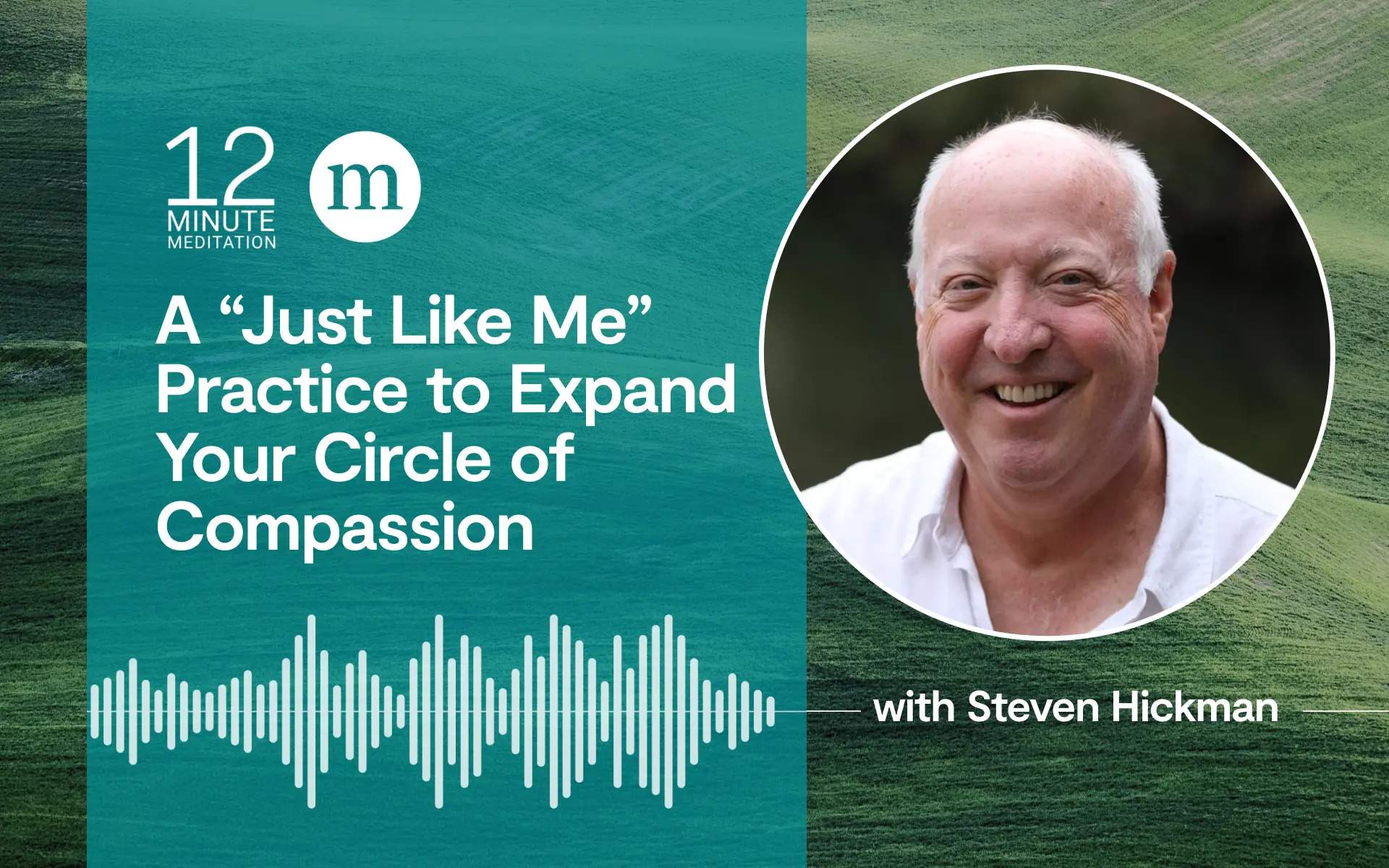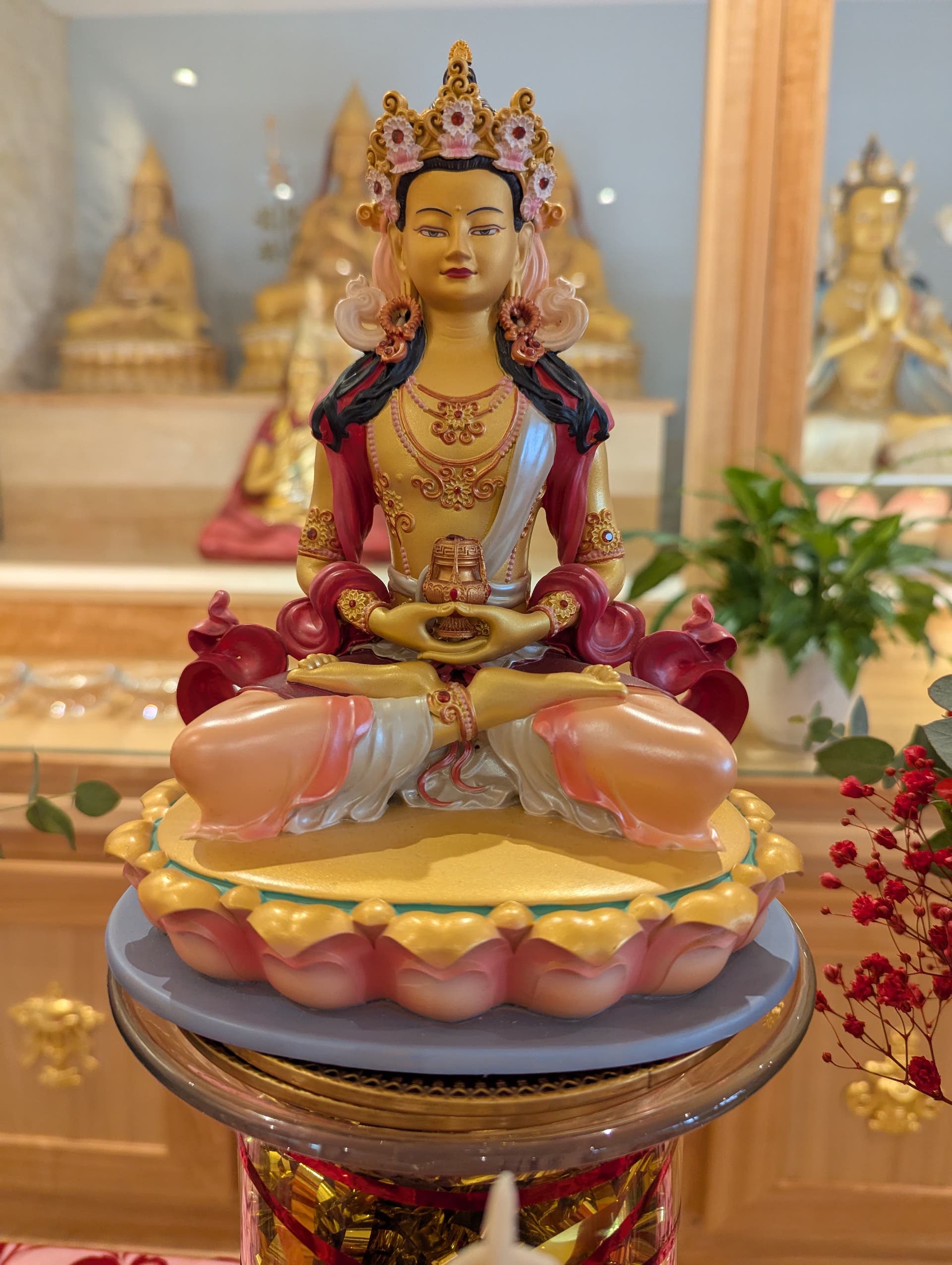A “Just Like Me” Practice to Expand Your Circle of Compassion: 12 Minute Meditation
The invitation with this practice is to put aside ideas and concepts about differences, shame, fear, survival, and the rest, and to simply see if you can begin to develop a felt sense of common humanity. What you are...


The invitation with this practice is to put aside ideas and concepts about differences, shame, fear, survival, and the rest, and to simply see if you can begin to develop a felt sense of common humanity. What you are tapping into here is the awareness that all of us wish for happiness and freedom from suffering, that this too is a part of our common humanity.
A “Just Like Me” Practice to Expand Your Circle of Compassion
This meditation is inspired by the writing and teaching of Thupten Jinpa in his book A Fearless Heart: How the courage to be compassionate can transform our lives.
Take some time to settle into your body for a few minutes, allowing your attention to drop inside. Take note of whatever is present in the way of sensation inside your body. You may notice the touch of clothing, the pressure of the supporting surface on certain parts of your body, or just sensations of coolness or warmth, relaxation or tension, ease or discomfort. Take note of where and how you are in this moment. You may notice the movement of breath into and out of the body as well, recognizing that the breath has continued to move on its own since you last attended to it. Imagine someone whom you hold dear, someone who brings a smile to your face when you think of them, someone with whom you have a relatively easy and uncomplicated relationship. This may be a family member like a child, a grandparent, or even a pet. Try to go beyond the idea of this being and see if you can actually feel what it feels like to be in their presence. Notice any pleasant feelings that may arise as you hold this beloved being in your awareness and see how easy it is to acknowledge that they, too, have the same aspiration for genuine happiness that you have. Now call to mind someone else, someone that you recognize but don’t have much meaningful interaction with and don’t feel any particular closeness to. This may be a person whom you see quite often, on the street, behind the counter at your favorite coffee shop, or driving the bus you take regularly. Notice what feelings arise for you as you picture this person and how these feelings may be different from what you felt in regard to the loved one you imagined first. See if you can imagine what it might be like to be this person. Usually, we don’t give much thought to the happiness of people in neutral roles in our lives like this. Imagine their life, their hopes and fears, which are every bit as real, complex, and challenging as yours. You may even recognize a certain similarity between yourself and this other person at the level of your common humanity. “Just like me, she wishes to be happy and to avoid even the slightest suffering.” Next, take some time to see if you can call to mind someone you don’t know at all, and who seems very much unlike you at first glance. Perhaps an image comes to mind from the news or in your imagination or from your previous travels. Maybe consider someone facing hardships far different from your own right now. Perhaps you might call to mind someone who doesn’t look like you . . . or someone who has an entirely different cultural background or life circumstances. You may find yourself thinking just now of people suffering through war or resisting tyranny anywhere on the globe. Take the time to see if you can look past the differences to what you have in common with this person or these people. Imagine looking into their eyes, sitting with them in meditation, feeling just a little of the joy and pain and sorrow and fear that they may experience . . . simply because they are human, just like you. See if you can put yourself in this person’s shoes for a moment, recognizing that they are an object of deep concern to someone, a parent or a spouse, a child or a dear friend of someone. Begin to acknowledge that even this person who seems so different has the same fundamental aspiration for happiness that you have. Allow your attention to stay with this awareness for some period of time (say 20 to 30 seconds). Allow thoughts and feelings to come and go as they will, as you remain present to whatever arises, with no other agenda but to observe and be kind to yourself in that presence. Finally, see if you can bring together these three people in one mental picture in front of you. Take some time to reflect on the fact that they all share a basic yearning to be happy and free from suffering. At this dimension, there is no difference between these three people. In this fundamental aspect, they are exactly the same. Just take the time to relate to these three beings from that perspective, from the point of view that they share the aspiration for happiness and a kind of perfect imperfection. Now include yourself in this circle of awareness, reminding yourself that:These people have feelings, thoughts, and emotions, just like me.
These people, during their lives, have experienced physical and emotional pain and suffering, just like me. These people have been sad, disappointed, angry or worried, just like me.
These people have felt unworthy or inadequate at times, just like me. These people have longed for connection, purpose, and belonging, just like me.
These people want to be happy and free from pain and suffering, just like me. These people want to be loved, just like me. With this deep recognition that the desires to be happy and to overcome suffering are common to all, silently repeat this phrase: “Just like me, all others aspire to happiness and want to overcome suffering.” Take some time to sit with whatever wishes or feelings arise from this practice, allowing them to arise and fall away. Your only agenda is to notice and take note of their arising.
Adapted from Self-Compassion for Dummies by Steven Hickman.
About The Author
Steven Hickman
Steven Hickman, Psy.D., is a Licensed Clinical Psychologist and a retired Associate Clinical Professor in the UC San Diego School of Medicine. He is Executive Director of the non-profit Center for Mindful Self-Compassion (CMSC), which has as its mission to “alleviate human suffering and improve the collective well-being of the planet through the practice of self-compassion”. Steve is the Founding Director of the UC San Diego Center for Mindfulness, and has taught Mindfulness-Based Stress Reduction (MBSR) and trained teachers of that program as well. Steve is a Certified MSC teacher and a teacher trainer, leading MSC courses and teacher training programs around the world. Steve is also the author of “Self-Compassion for Dummies.”
GET THE LATEST ON EVERYTHING MINDFULNESS
Our free newsletter delivers updates on the science of mindfulness, guided mindfulness meditation practices from leading teachers, special offers, and rich content to support your mindful growth.

 UsenB
UsenB 































